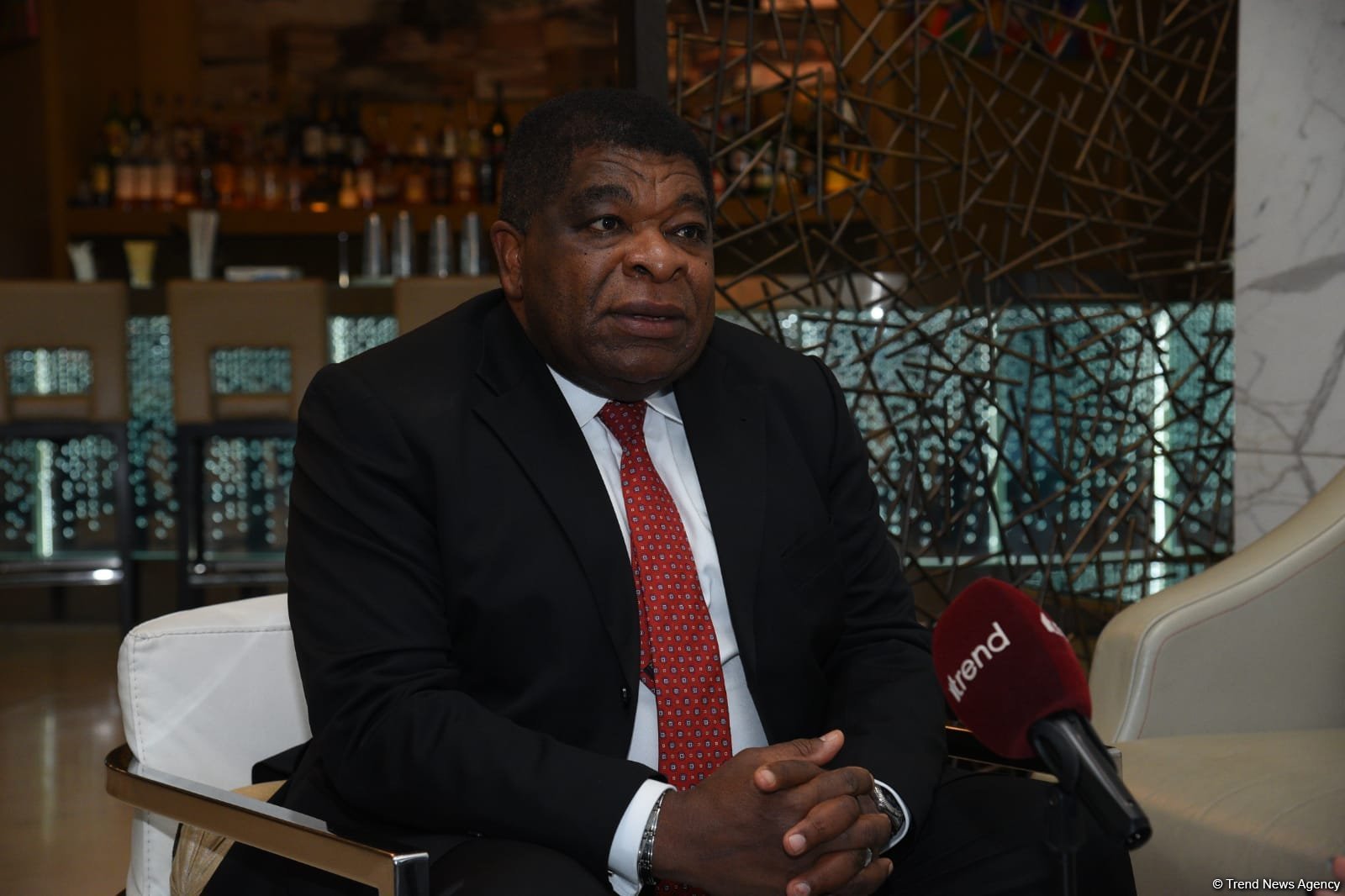BAKU, Azerbaijan, February 2. The discussions on creating Azerbaijan-Armenia interparliamentary dialogue platform may take place in March in Geneva, Secretary General of the Inter-Parliamentary Union (IPU) Martin Chungong said in an exclusive interview with Trend, as he visited Baku.
He pointed out that IPU is aware of the recent developments in the region, the relations between Azerbaijan and its neighbors, and the IPU, as the organization that was created to foster peace and security in the world, feels it is necessary to discuss and engage with the parties to the crisis and see how it can be helpful through dialogue to resolve issues that are not in place, that have the potential for creating instability.
"I have had those discussions with the authorities of Azerbaijan, and I am pleased with the response that I have received. What we are striving for at this stage is to secure an agreement on principle of IPU providing a platform for the two countries at the parliamentary level, to sit together and discuss in a frank and honest manner those issues that can, if resolved, help consolidate peace in the region. We are thinking of inviting the senior leadership of the parliaments of the two countries to come together, because we believe in parliamentary diplomacy, which is complementary to the traditional form of diplomacy that is articulated by the executive arms of government," said IPU secretary general.
Chungong said he feels energized to prosecute the initiative that we have launched, and which has received strong support from Azerbaijan at the highest level of state.
"You can be sure that this overall initiative goes well for whatever actions we will be putting in place. So I will be inviting speaker of Azerbaijani parliament Sahiba Gafarova to come to Geneva to have talks with counterparts in Armenia so that we can begin to move along the agenda of creating this platform for ongoing dialogue. We hope that we can organize such a meeting during the next assembly of the Inter-Parliamentary Union which takes place around the 23rd of March to about the 27th of March this year. We want to engage the representatives of the people to sit together in a cordial format, initially informal to really talk about those burning issues that are a bone of contention between the two parties. And in this way, we can create a better understanding between the parliaments of the two countries. We can then seek to create an environment that is propitious and conducive for the successful outcome of ongoing peace negotiations between the two countries," he said.
Chungong clarified that the purpose of IPU's initiative is not to duplicate what is being done by the governmental authorities through negotiations between two states.
"That is the role of the government in international law. The parliaments can bring their voice to the discussion so that whatever peace outcomes are arrived at are responsive to and committed to. And that is convenient or may be conformant with the needs of the people that are represented by parliaments. I'm pleased to note that on both sides there is a positive response to this initiative. And we look forward to this engagement because we think that it holds a strong potential for creating trust, for dispelling misunderstandings that may be there and for creating that goodwill that is necessary for peaceful and harmonious relations between people. My organization, the IPU, is very pleased to be able to offer that platform because that is its mandate, its duty and responsibility to humanity to arrive at a mutual understanding between parties to a conflict and in this way contribute to peace and security in the world," said IPU secretary general.
He noted that first of all, positive forces are needed to be mobilized here.
"We should build on the positive forces that are out there and minimize the possibility, the potential for destruction by those other forces. We are concerned with mobilizing the positive forces that are there. My discussions with President Ilham Aliyev left me very satisfied with the commitment to prosecute the peace process in a way that is successful. That is what is important to us, the commitment by the two sides. We maximize the contribution of the positive facilitators and so, to minimize the influence, the impact of those who may have their own agenda. So for me, what I'm looking to is tapping into the positive forces there, starting with the parties concerned. And as I say, I'm very pleased with the response that we have," added Chungong.
Follow the author on X: @Lyaman_Zeyn







